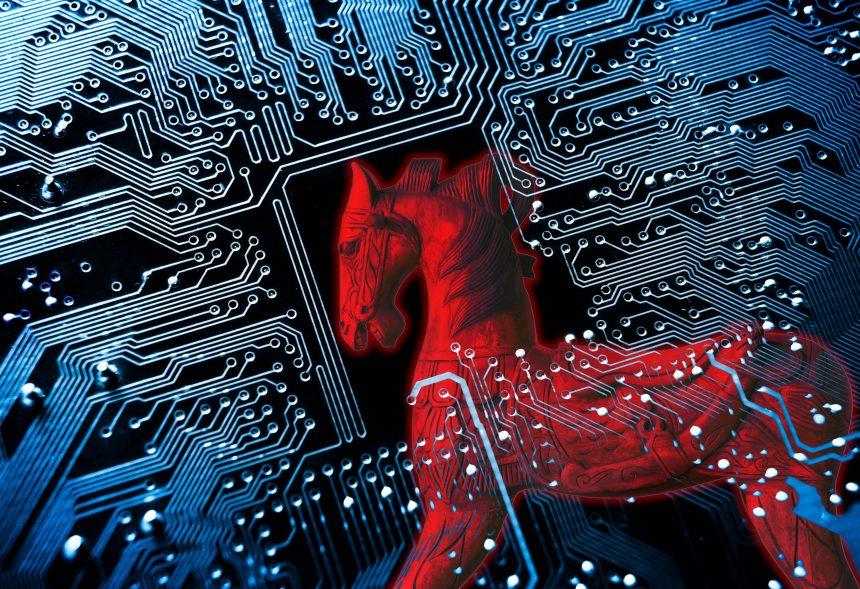Trojan horse malware, commonly referred to simply as “Trojans,” represents a specific category of malicious software designed to infiltrate systems by disguising itself as a legitimate or benign program. Unlike viruses or worms, Trojans do not replicate themselves but rely on social engineering to deceive users into executing them. The term “Trojan horse” originates from the ancient Greek myth where the Greeks used a deceptive wooden horse to infiltrate the city of Troy. Similarly, Trojan malware tricks users into unwittingly installing harmful software that can compromise their systems.
Purpose and Threat of Trojans
The primary purpose of Trojans is to gain unauthorized access to a system or network, often with malicious intent. They can be used to steal sensitive information, monitor user activity, or create backdoors for further attacks. Trojans generally infiltrate systems through deceptive methods such as phishing emails, infected software downloads, or compromised websites. Once installed, they can perform a variety of harmful actions, including data theft, system corruption, and unauthorized control of the infected system.
TrojanWin32:HeavensGate: A Detailed Look
TrojanWin32:HeavensGate is a specific variant of Trojan horse malware that poses significant risks to both the infected system and the user. Here’s a detailed look at how it operates:
- Installation Method: TrojanWin32:HeavensGate often enters a system through malicious email attachments, compromised downloads, or software cracks. Once a user unknowingly opens the infected file or application, the Trojan installs itself on the system.
- Post-Installation Actions: After installation, TrojanWin32:HeavensGate may perform a range of malicious activities. It can create hidden files or processes, modify system settings, and establish communication with a remote server controlled by cybercriminals. This server may be used to exfiltrate sensitive information or receive further commands to execute additional malicious tasks.
- Consequences: The presence of TrojanWin32:HeavensGate can lead to severe consequences, including data breaches, financial loss, and system instability. Users may experience unauthorized access to their personal and financial information, and their system may become sluggish or unresponsive.
Symptoms of Infection
If you suspect that TrojanWin32:HeavensGate may be present on your system, look out for the following symptoms:
- Unexpected system slowdowns or crashes.
- Unusual network activity or increased data usage.
- Unauthorized changes to system settings or files.
- Frequent pop-ups or advertisements.
- Disappearance of files or applications.
Detection Names: To identify this Trojan, you can look for the following detection names in your security software:
- Trojan.Win32.HeavensGate
- HeavensGate Trojan
- Win32:HeavensGate
Similar Threats
Other similar threats you might encounter include:
- TrojanWin32:Emotet: Known for its capabilities in stealing sensitive information and distributing other malware.
- Trojan.Win32:Zeus: Often used to capture banking credentials and other sensitive data.
- Trojan.Win32:Dridex: A Trojan that targets financial information and can spread via malicious email attachments.
Removal Guide
To remove TrojanWin32:HeavensGate, follow these steps:
- Enter Safe Mode: Restart your computer and boot into Safe Mode. This limits the functionality of the operating system to prevent the Trojan from running.
- Delete Temporary Files: Use the Disk Cleanup tool to remove temporary files that may be used by the Trojan.
- Run Anti-Malware Software: Download and install a reputable anti-malware tool. For a reliable scan and removal, we recommend SpyHunter. It provides robust detection and cleaning capabilities.
- Download SpyHunter: Visit this page to download SpyHunter.
- Install and Update: Follow the installation instructions and ensure the software is updated with the latest virus definitions.
- Run a Full Scan: Launch SpyHunter and perform a comprehensive system scan.
- Remove Threats: Follow the prompts to remove identified threats.
- Check System Settings: Verify that no unauthorized changes have been made to system settings or startup items.
- Change Passwords: As a precaution, change passwords for sensitive accounts, especially if you suspect data theft.
- Update Software: Ensure that all your software, including operating system and applications, is up-to-date with the latest security patches.
Preventing Future Infections
To prevent future infections from Trojans like TrojanWin32:HeavensGate:
- Install Reliable Security Software: Keep your anti-malware software updated and running.
- Be Cautious with Emails and Downloads: Avoid opening email attachments or downloading software from unknown sources.
- Regularly Update Your System: Apply security updates to your operating system and applications promptly.
- Backup Your Data: Regularly back up your important files to an external drive or cloud storage.
Conclusion
Trojan horse malware, such as TrojanWin32:HeavensGate, poses serious risks to your system and personal data. By understanding how it operates and taking preventive measures, you can protect your computer from these threats. For an effective removal solution, consider using SpyHunter for a comprehensive scan and cleaning.





